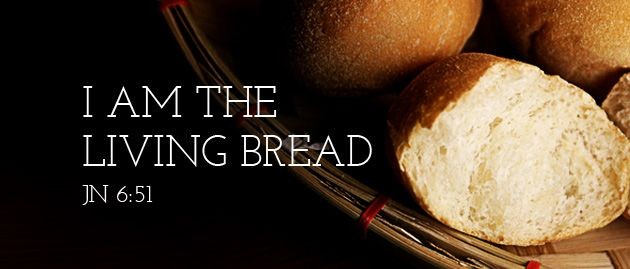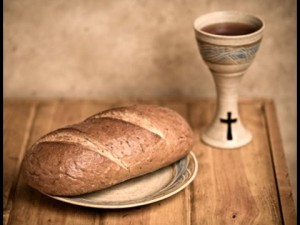Oct 20, 2018
Gospel Reflection
In Dialogue with Questions of the Day: The Servant Church
Gospel (Mark 10:35-45): The Son of Man came to give his life as a ransom for many.

The Church is often criticized today for being far removed from the teaching and model set by Jesus and put before us in Mark’s Gospel – and rightly so. In the first instance, Jesus’ words are addressed to his apostles. The model of the then civil government was not to be for them. Jesus’ teaching on service, and being servants to one another in the Christian community became common and is central, for instance, to Pauline teaching on the Christian community. Central to the message of today’s Gospel reading is Christ himself as model; self-promotion takes attention away from this.
But to return to the apostles and their successors: the model of service is central to Paul. For the sake of the Gospel he became the servant of all, to win all for Christ. As Jesus reminded his apostles, anyone wishing to become great was to be the servant of all. This did not take from the mission to preach the Gospel. As ministers of the Gospel, all were equal, with the same mission from God. The apostle Paul could present himself as the servant of all, but could make it clear that as apostle he preached the Gospel with the confidence that came from his apostolic calling. He could say: “Not I say, but the Lord”. He handed on what he himself had received from the Lord and from earlier Christian tradition.
Applying the Gospel message to the Church of our own day, we can certainly say that the message of being servants of one another applies to the successors of the apostles, and to all Christians. While criticizing the Church for deviation from the Gospel message, one may also note that this should not take from the Church’s prophetic mission to preach the full Gospel message as required in our own day, without fear or favour. In so doing the Church has the model of St Paul, all things to all people, as minister of the Gospel of God.
Fr Martin McNamara MSC
Oct 6, 2018
It is not good for man/woman to be alone
Gospel Reflection: Mark 10:2-16
God has created us as relational. It is not good for us to be alone. This is an important message for us in this very individualistic age.

Jesus is asked if divorce is OK. His response is to recall God’s original vision for us. God made us for one another. For most people, this takes the shape of finding one special person and forming a special relationship. Those who are single also live in relationship with other people. Without such connection people become sick, both physically and mentally.
In Romania, under communist rule, many orphans were kept in institutions where they were deprived of human touch. Even though these children were fed and given enough to drink they became sick and some died. For human beings to live and thrive, they need touch, love, relationship.
However, the kind of relationship that people need is deep rather than superficial. Unfortunately, today, many people see relationships as almost a commodity. Something to be taken off the shelf and replaced when it no longer suits. This is not how God made us. For relationships to grow, they must pass through difficulty and struggle, confusion and understanding, forgiveness and reconciliation. Without working through the problems, relationships never deepen.
Jesus invites us to accept our need of deep relationship. That is not to say that sometimes relationships end. However, God’s dream for us remains deep, long-lasting, and life-giving relationships.
Fr Con O’Connell MSC
Sep 15, 2018
Gospel Reflection
In Dialogue with Questions of the Day:
When the Church is weak, then she is strong.

In our own day, the Church, particularly in Europe and the English-speaking world, is undergoing a crisis, especially because of faulty Church administration, allegations of abuse, and court verdicts. For many this can be disheartening; for others a reason to abandon practice of their faith or even faith itself. The problem is felt keenest in countries where the Church and the clergy were held in high esteem, and the clergy even in a sense beyond reproach. Some even question whether the Church will ever regain her moral status, or even survive the crisis.
In a sense, in view of the attacks from various angles, the Church is being persecuted. This may be a good thing for the Church. In fourth-century Africa, the Church was at peace and had a vigorous spiritual life after centuries of persecution. The noted scholar Tyconius, writing on the Apocalypse of John, could not identify with the Church since it was not being persecuted! The present crisis in the Church could be a call to regard the Church, the Body of Christ, as it really is – a mystery. She understands herself best by going back to the Gospels and the teaching of St Paul.
“God, in Christ and the Church, works through human weakness.”
We all like status, being in a state of respect and of honour, and this is natural. But let us recall Jesus’ message. Possibly Jesus, as a human, liked the same. After his baptism, where he was declared by the Father from heaven as his Son, in whom the Father was well pleased, he may have had the natural desire to profit by this. In his temptations, Satan tried to get him to do so. The early Christian hymn in Philippians 2:5-11 says that, instead of this, Jesus humbled himself even to the ignominy of the cross. Peter at Caesarea Philippi found reference to Jesus’ humiliation and crucifixion too much, but as follower of Christ came to accept the mystery. For the Pharisee Saul, death by crucifixion of one believed to be the Messiah was totally repulsive. But he too was led to see that this was God’s way.
God, in Christ and the Church, works through human weakness. Paul came to realise that in the contradictions of his ministry and in his own personal life: “When I am weak, then I am strong” (2 Corinthians 12:10). In his preaching of the Gospel, he was keen to stress the centrality of the Cross and resurrection, so that Christian faith is based on divine grace and power, not human reasoning. God willed to save the world not by wisdom (as Greek wisdom would wish it), nor by miracles, but by the foolishness of the cross.
It is not that the Church does not respect human wisdom and ingenuity. With Paul, believers are called on to rejoice always, and to think positively, about “whatever is true, whatever is honourable, whatever is just, whatever is pure, is gracious, if there is anything worthy of praise” (Philippians 4:8). But Christian faith is a continuation of Christ’s death and resurrection, a mystery to be understood through faith, and by prayer for the understanding of this great mystery. Christ is with his Church, in the soul of every believer bringing conviction in trials.
Fr Martin McNamara MSC
Sep 1, 2018
THE LAW PROTECTS THE LITTLE ONES
In today’s Gospel reading, Jesus is accused of being a law-breaker. On many occasions the religious elite accused Jesus of breaking the law of Moses.

Jesus points out that they have misunderstood the law and its purpose. The highest law, as Jesus reminds us, is love of God and love of neighbour. Love of neighbour particularly means love of the poor, vulnerable, and weak neighbour.
The law was never meant to make life more difficult for these little ones. It was never meant to take bread out of their mouths.
In fact, one purpose of the law of love is to protect the poor and weak from abuse by the rich and powerful. In Hebrew, these little ones are called the Anawim.
God loves everyone, rich or poor, strong or weak, powerful or vulnerable. However, the little ones need a bit more looking after.
Jesus’ mother Mary foretold that through Jesus, God would “cast the mighty from their thrones and raise up the lowly”, that he would “feed the starving with good things and send the rich away empty”.
Of course, the rich and powerful would not like this. This is one of the reasons they accused Jesus of being a law-breaker. This is why they conspired to have him killed at the hands of the Romans.
Today, Jesus calls us to stand with the Anawim, to stand up for them any way we can. He was unafraid. May we be granted something of His courage as well.
Fr Con O’Connell MSC
Aug 18, 2018
Reflection: In Dialogue with Questions of the Day: Jesus Christ the Bread of Life. Redemption. Murmuring. A Sign to be Contradicted.
Gospel (John 6:51-58). My flesh is real food and my blood is real drink.

1. While the discourse on Jesus as the Bread of Life in today’s Gospel reading may have the manna tradition and the wisdom tradition of the Bible and Jesus tradition behind it, it is by no means a literary composition on these themes. It clearly sets us the position of Jesus as the way to God. It affirms that, in him, God the Father, speaks to the world, as he did at Jesus’ baptism and at the Transfiguration: “This is my beloved Son”. It speaks of Jesus as redeemer of the human race. The bread that he gives is his flesh, for the life of the world. It speaks of true life through union with Christ and the Father.
2. The discourse speaks of complaining, grumbling, with regard to Jesus’ affirmations and claims. The Jews in his audience, and many of his Jewish followers, find what he has said intolerable and unacceptable and part company with him. Among other things, his assertion on redemption would not be theirs.
3. There is still complaining, grumbling, and outright rejection of what the discourse on Jesus as the Bread of Life stands for in our own day. In part we live in a world where among sections of the intelligentsia there is a quest for redemption without Christ or God. As examples of this, some instance the Russian writer Fyodor Dostoyevsky and the Irish playwright Tom Murphy. As noted in the entry under Murphy’s name on the Internet site Wikipedia, recurring themes in his plays include the search for redemption and hope in a world apparently deserted by God and filled with suffering. The theme is explored in his play The Sanctuary Lamp (lit before the Blessed Sacrament reserved). This play explores major themes of redemption, love, guilt, spirituality and the existence – or non-existence – of God. It portrays the struggle of down-and-outs looking to find some kind of meaning to their lives. In common with much of Murphy’s work, this play deals with the battle against nihilism and finds a form of redemption and hope in mankind’s ability to show compassion and love, and to find an individual spirituality. The Lamp itself becomes an image of the light of the human soul unattached to dogma or religion
4. Over the centuries, and in our own day, we encounter complaining, grumbling, about how the Catholic doctrine of the Real Presence of Christ is expressed. When Berengar of Tours (11th century) denied that any change in the elements of bread and wine is needed to explain it, the term transubstantiation (change in the substances) entered as part of the explanation. This term became official in the Fourth Lateran Council (1215), and the Council of Trent (“a fitting and proper” term). Catholic belief in the real presence has been expressed through the centuries in its usage and devotion (consecrated hosts to the sick outside of Mass, reservation of the Blessed Sacrament, and such like). The fact that this divine presence is a mystery of faith should never be forgotten.
5. Since the belief in Jesus as the Bread of Life and Saviour of the world is such a mystery, and since no one can come to him without the Father’s invitation, prayer for belief in Christ is essential.
Fr Martin McNamara MSC
Aug 4, 2018
THRIVE, NOT JUST SURVIVE
“I am the bread of life,” says Jesus. The life that Jesus offers is a full life. It is not just existing. Today’s first reading portrays the manna in the desert as food that just kept people alive. The life that Jesus offers, the life that Jesus is, is the fullness of life. It is thriving rather than just surviving.

For many people in our world, life is a struggle for existence. Billions of our brothers and sisters spend most of their time and energy each day finding enough food, clothing, and shelter in order to survive, barely. Many others live lives that are hemmed in by alcohol, drugs, fear, the pursuit of wealth, of comfort, or of fame. So many people are only living a shadow of the lives that God wishes for them. Jesus is the bread that gives fullness of life rather than just partial life.
At the Eucharist, we are fed by the Bread of life. Not just in the sacrament, but in the Word and in the gathering. God feeds us in so many ways and not just at the Eucharist. When we stop to pray or reflect during our busy day, God feeds us. If we read God’s Word, we are fed. Time spent with fellow Christians focusing on love of God and of our neighbour nourishes us. Our whole week can be Eucharistic, a feast on the Bread of life.
The Father’s desire for us is the fullness of life. A life where we know that we are loved unconditionally and where we can love others. This life is sustained and nourished by the Bread of life. It is a life not measured by likes or retweets. Rather it is a full, thriving life rooted in the life of God.
Fr Con O’Connell MSC






